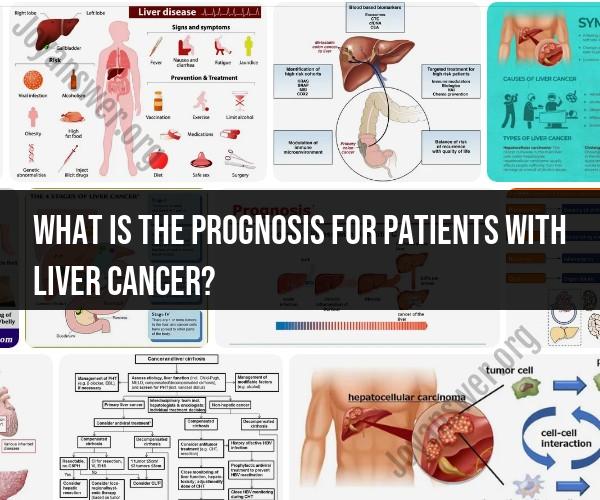What is the prognosis for patients with liver cancer?
The prognosis for patients with liver cancer varies widely and depends on several factors, including the stage at which the cancer is diagnosed, the type of liver cancer, the patient's overall health, and the effectiveness of treatment. Here's a general overview of the prognosis for liver cancer:
Stage of Cancer: The stage at which liver cancer is diagnosed is a critical factor in determining prognosis. In general, the earlier the cancer is detected (i.e., at an earlier stage), the better the prognosis. Liver cancer is often categorized into four stages: stages I, II, III, and IV, with stage IV being the most advanced.
Type of Liver Cancer: There are several types of liver cancer, with hepatocellular carcinoma (HCC) being the most common. The prognosis can vary based on the type of liver cancer.
Tumor Size and Number: The size and number of tumors in the liver can impact prognosis. Smaller tumors and fewer tumors generally have a better prognosis than larger or multiple tumors.
Liver Function: The overall health and function of the liver are essential factors. Patients with healthier liver function may tolerate treatments better and have a more favorable prognosis.
Cancer Spread: The extent to which the cancer has spread beyond the liver affects prognosis. If the cancer has spread to nearby lymph nodes or distant organs, the prognosis may be less favorable.
Treatment Options: The availability and effectiveness of treatment options also play a significant role. Some patients may be candidates for surgical resection, liver transplantation, ablation therapies, chemotherapy, targeted therapies, immunotherapy, or a combination of treatments.
Underlying Health Conditions: Patients with other underlying health conditions may have a more challenging prognosis, as their overall health can affect their ability to tolerate aggressive treatments.
It's important to note that liver cancer is often diagnosed at an advanced stage because early-stage liver cancer may not cause noticeable symptoms. As a result, the prognosis for liver cancer can be less favorable than for some other cancers.
The best approach to improving prognosis is early detection through regular medical check-ups and screenings, particularly for individuals at higher risk, such as those with chronic hepatitis B or C infection, cirrhosis, or a family history of liver cancer.
Ultimately, the prognosis for liver cancer varies from person to person, and it's essential to discuss your specific situation and treatment options with a healthcare provider who can provide personalized information and guidance based on your medical history and circumstances.













